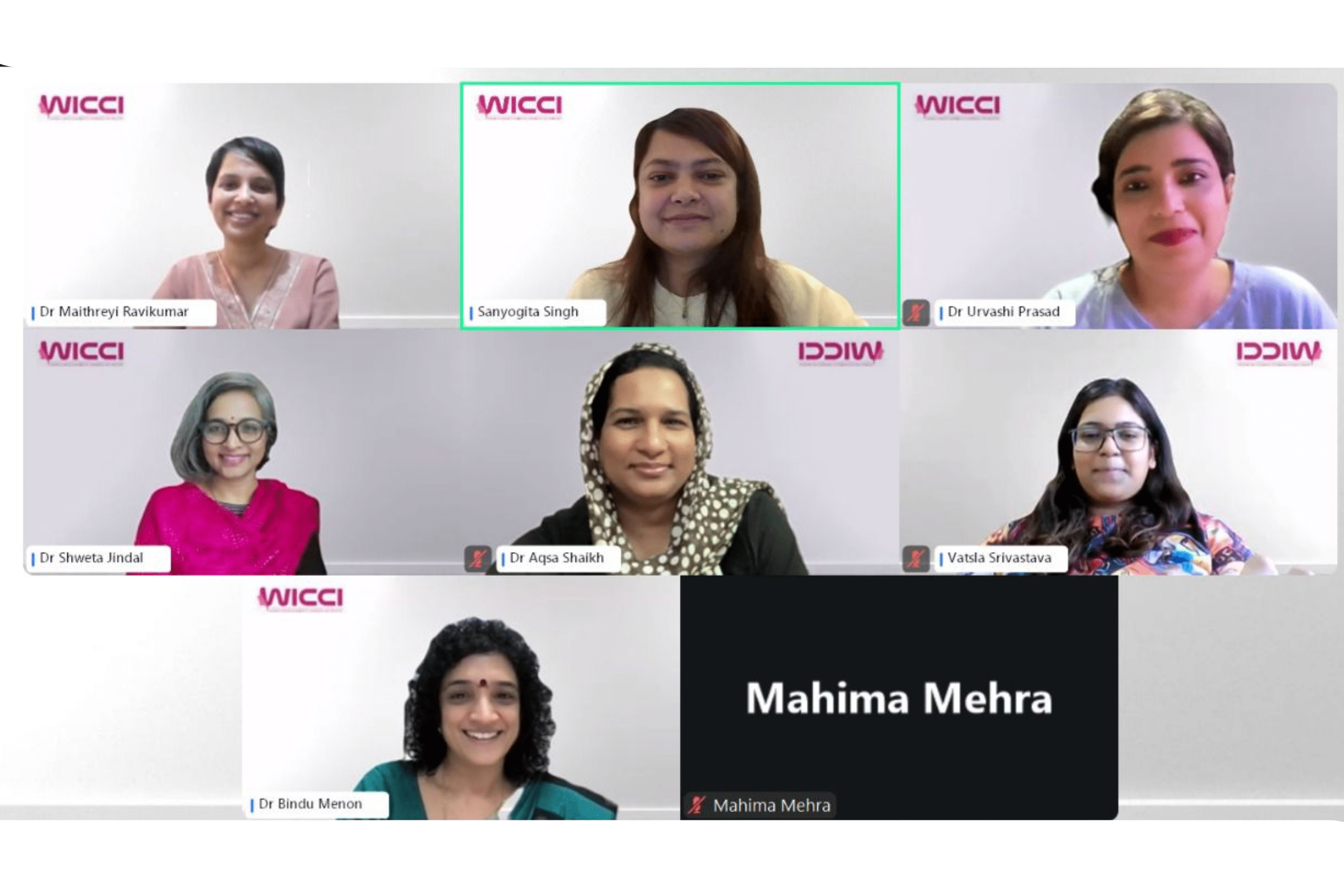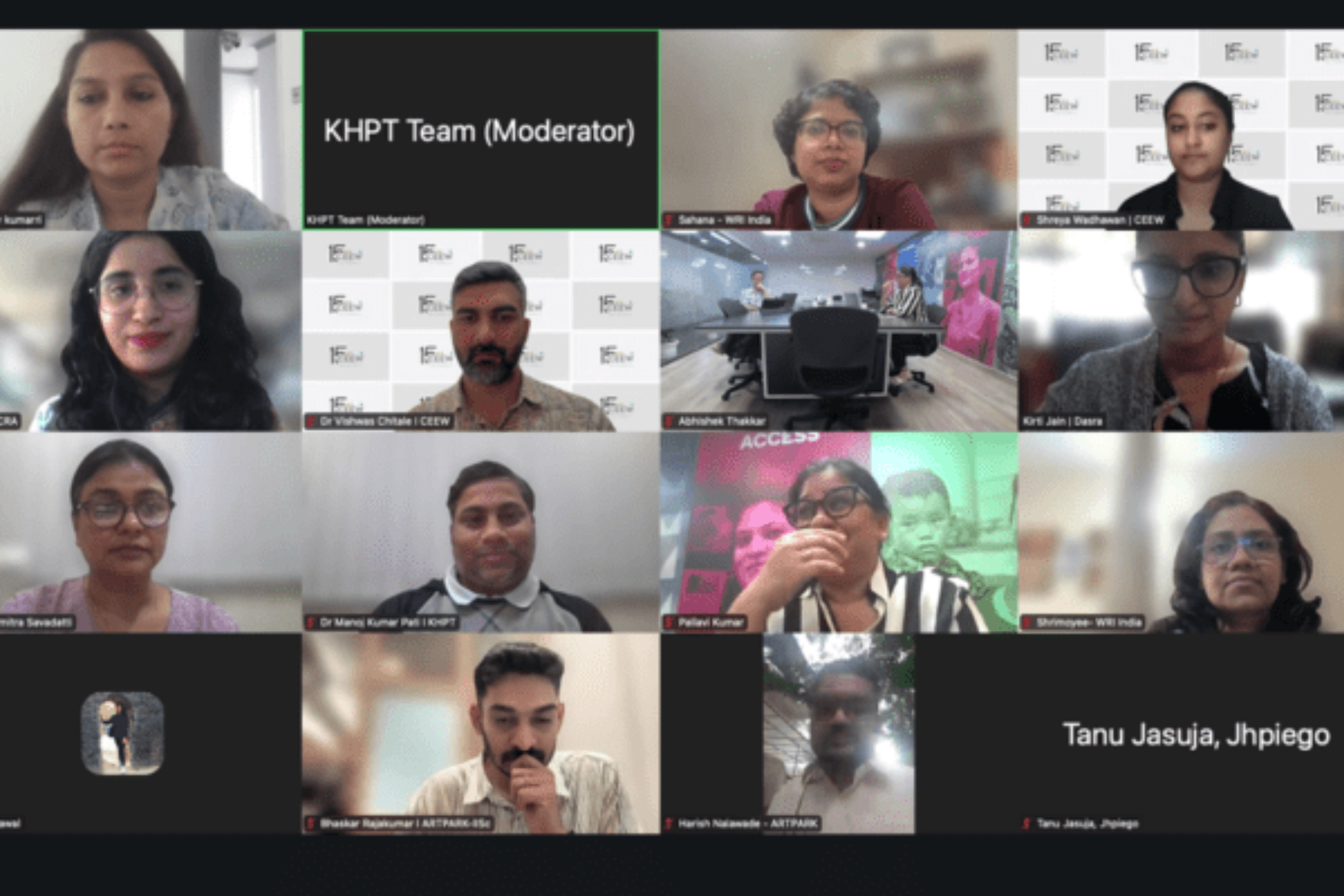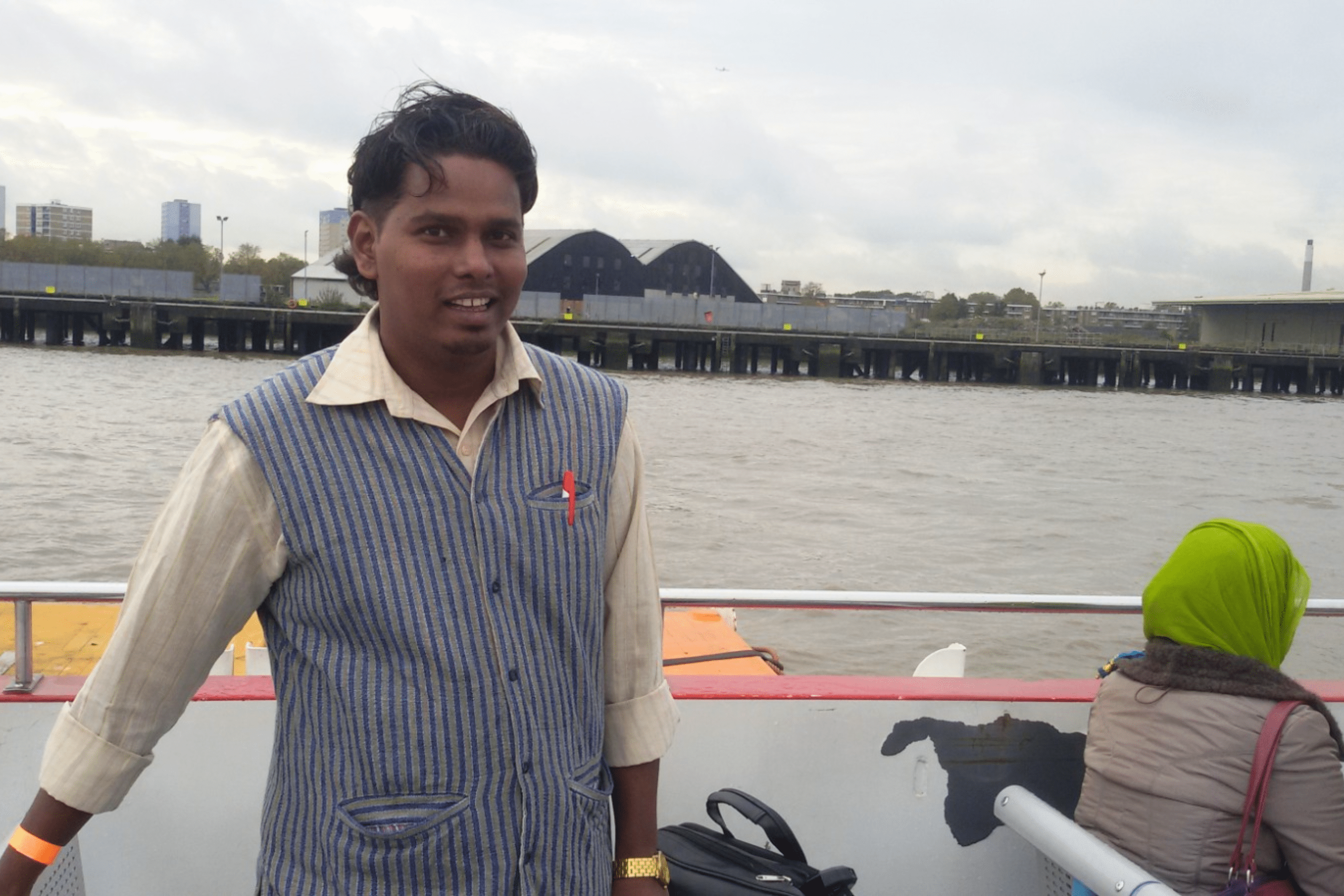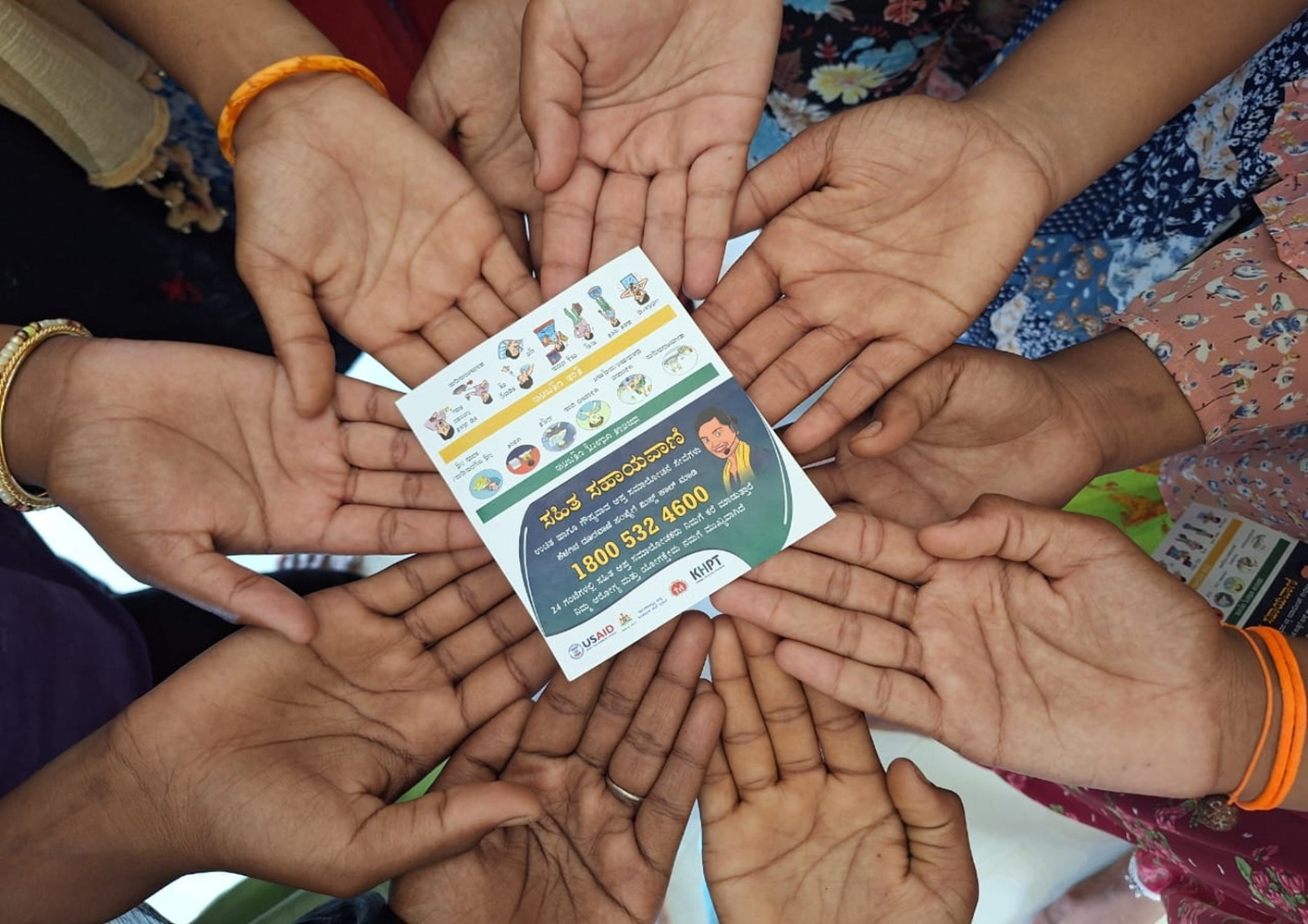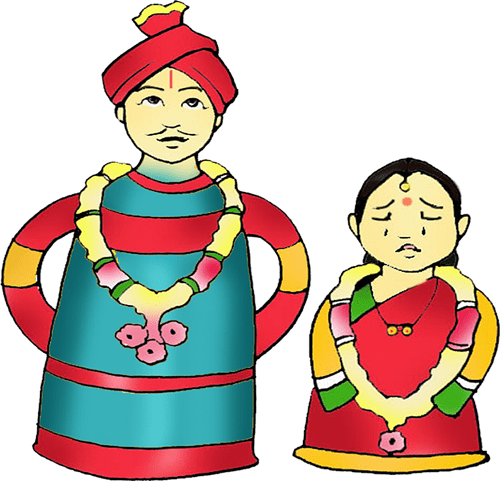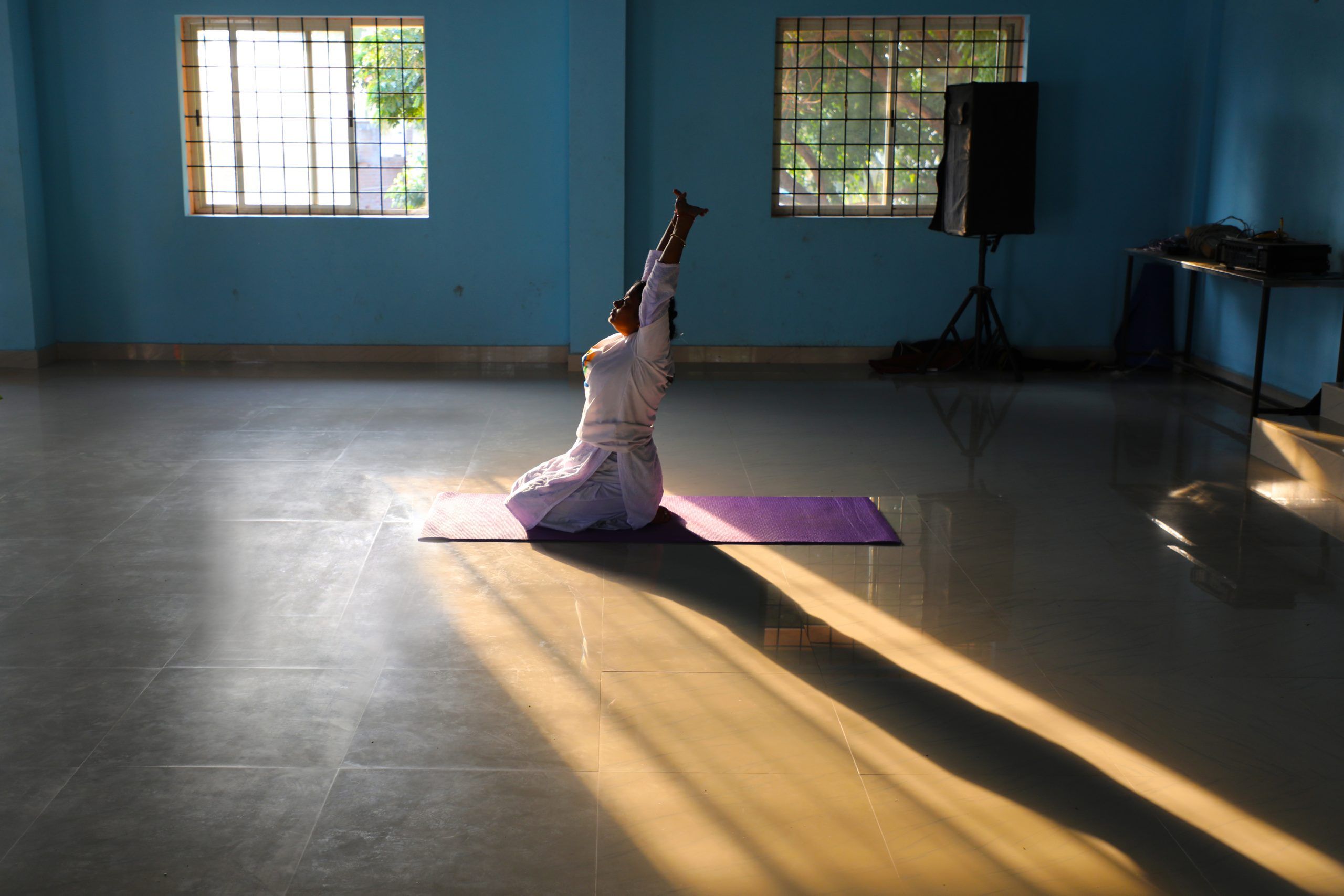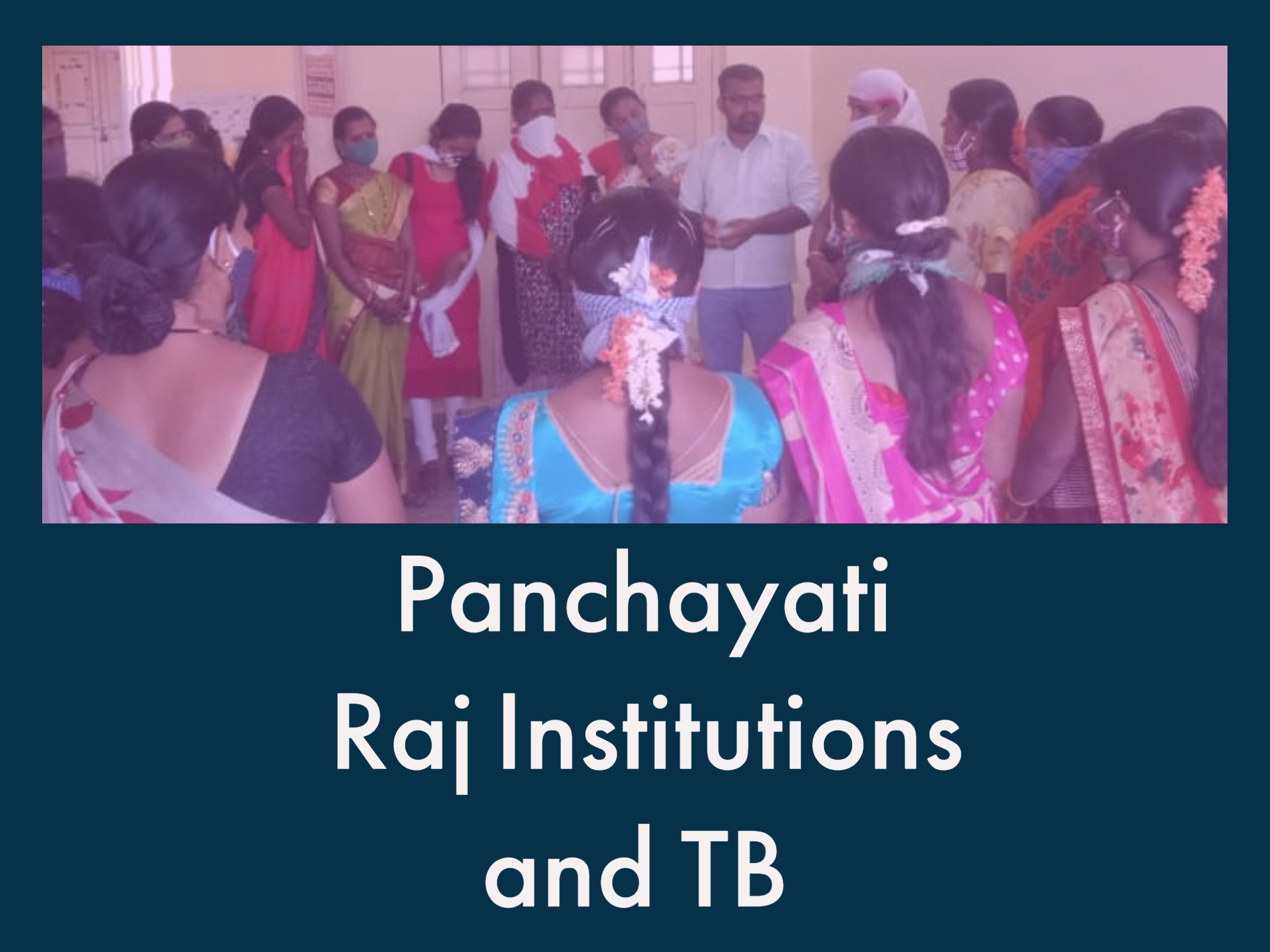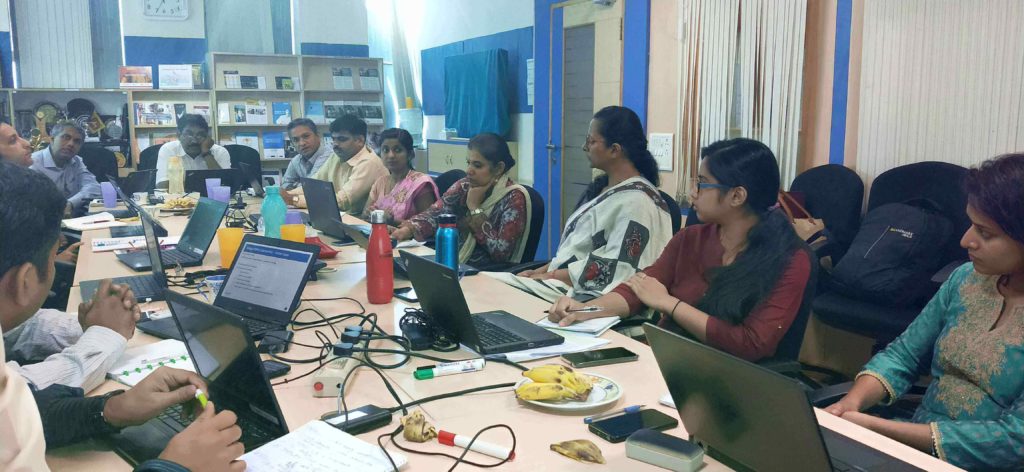
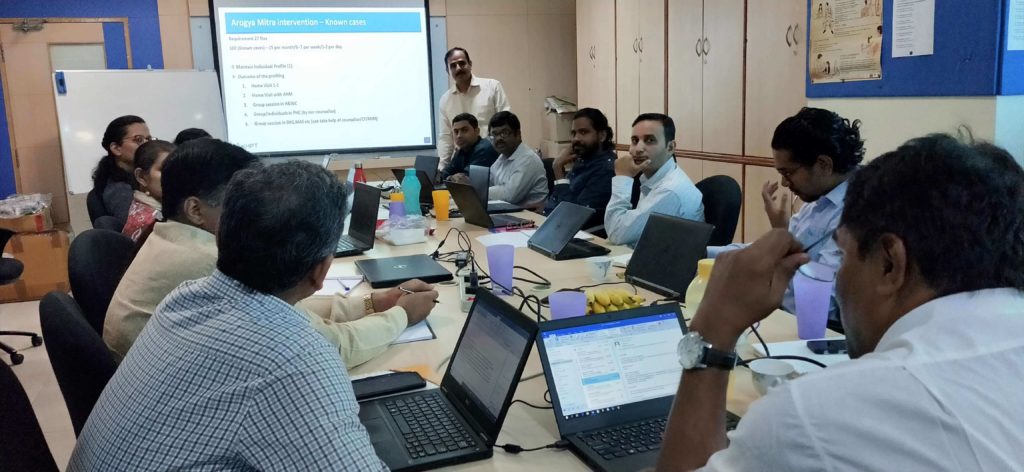
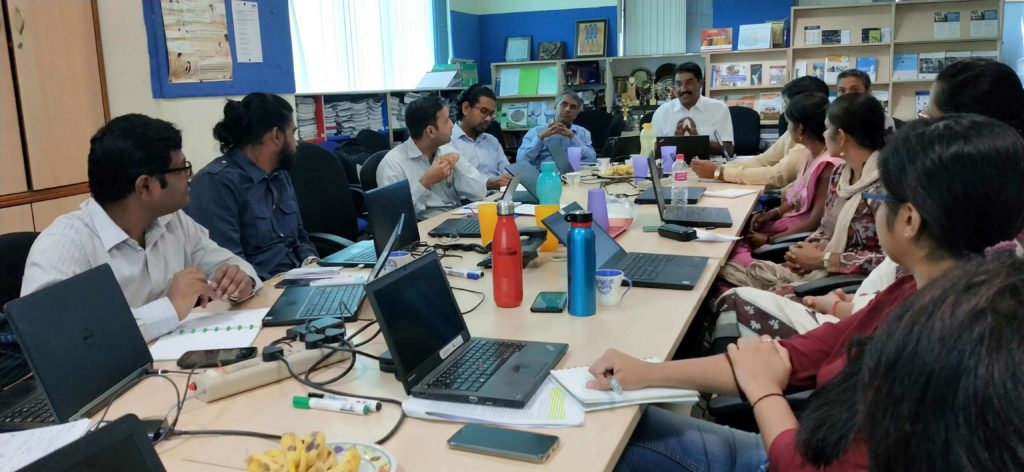
Visioning workshop was organized in collaboration with the Landmark team to discuss about the learnings from Phase II (2018-19) and to brainstorm on the strategies for Phase III (2019-20) of the NCD project in urban Mysore and the Health Entrepreneur (HE) project in rural Chincholi. For the Mysore project the discussion around community intervention strategies took centre stage whereas for the entrepreneur project capacity building of HEs to build their entrepreneurial capability to diversify their business was the major point of discussion.
A key steps/processes of the Mysuru NCD project is screening, in which a population-level screening for diabetes and hypertension for adults of 30 years or above is done in line with the National NCD Program guidelines along with our earlier strategy of screening adults over 18 years of age. The plan is to roll out screening and intervention simultaneously, instead of waiting for the screening phase to be fully completed to get on with the interventions.
Our services will be expanded to 5 more UPHCs in Mysuru city and extended to secondary care (CHCs) as well, apart from the already existing services at Kumbarakoppalu UPHC. An effective follow-up and referral linkage will be established with the CHCs.
Capacity building of healthcare staff in UPHCs and UCHCs on counselling skills and advice on non-pharmacologic (non-medical, like counselling on diet, physical activity, alcohol, and tobacco) will be thoroughly conducted for early complication management. Quality control of equipment, drugs and logistics and quality improvement of practices (cleanliness, documentation) will be prioritised during this phase. Consequently, it will improve facility readiness, provider capacity, and ensure client safety and satisfaction and cost-effective and efficient technologies for identification early of complication will be explored. In summary, the facility intervention will ensure end-to-end quality NCD care for all eligible beneficiaries.
This will be followed by Community intervention through community mapping, household listing, and mobilisation, and then will be expanded to 5 new wards in the Mysuru city, with a prioritised focus on the urban poor. This phase will devote special attention to the urban poor and vulnerable groups, migrant workers, daily wage labourers, slum dwellers, rag pickers, etc. Identification and recruitment of a cadre of outreach workers (ASHA+) for enhancing outreach, community mobilization, and BCC activities in the existing area of Kumbarakoppalu will be ensured.
The Health Entrepreneurship model at Chincholi will undergo a one year of the rigorous trial, under which our entrepreneurs will provide basic NCD screening at the gram panchayat level. Our Entrepreneurs will charge a minimum service fee for each screening. Along with these services, our entrepreneurs will promote nutrition supplements and other products to improve the health condition of the people living in the most backward taluka of Karnataka, i.e. Chincholi. A qualitative assessment will be conducted to check the entrepreneurial spirit of our HEs and case studies will be developed showcasing the changes and growth of our HEs through this model. This project will mainly focus on the health-centric products and services throughout its existence.
At present, we are planning to market and sell 2500 Units of KHPT’s brand of nutrition supplement called ‘Shakti Vita’ in Chincholi. Apart from that, certification for HEs has been planned in addition to the customised training for HEs on entrepreneurial skills and clinical skills, to add value to their credibility and boost their confidence to perform better.
